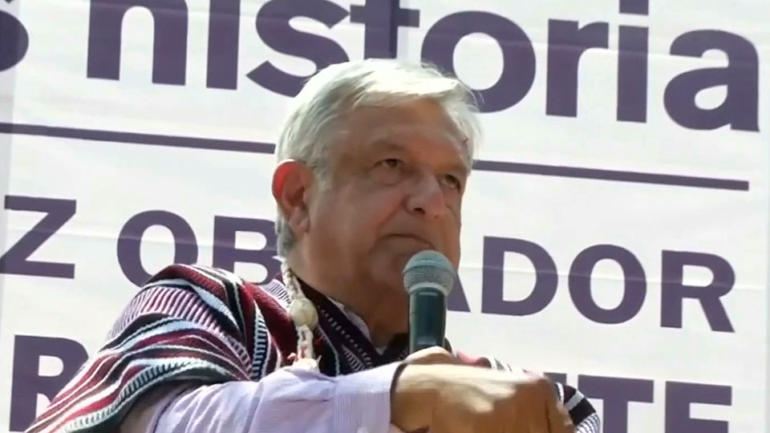Mexico’s next president takes office Saturday.
While tensions remain with the country’s northern neighbor, Andres Manuel Lopez Obrador has been restrained in criticizing president Donald Trump.
CGTN’s Alasdair Baverstock reports from the U.S.-Mexico border.
A right-wing populist to the north. A left-wing populist to the south. A collision course might seem inevitable and nowhere more visibly than at U.S.-Mexico border.
The stakes are high. A renegotiated trade deal, a joint ‘war on drugs’, which has cost at least 200,000 lives since 2006 and fresh waves of Central American migrants. Ratcheting up social and economic pressures on both sides of the border.
Latin America’s second-largest economy will go to the polls on Sunday to choose its next president and a new congress at a time of widespread disillusionment at unchecked corruption, poverty and violence that has claimed at least 200,000 lives since 2007.
This U.S. immigration lawyer says Mexico can’t be expected to enforce U.S. policies.
“Mexico is not the United States’ stooge, and it’s not the employee of the United States and has no obligation or reason to act as its policeman and detain people so that they cannot make their way to the United States. When Mexico does not impede Central Americans from reaching the U.S. border, that is going to be a thorn in Trump’s side,” said Jan Joseph Bejar a San Diego-based Immigration Attorney.
But, maybe less thorny than it once appeared.
Since his election win in July, Lopez-Obrador, known here by his initials “AMLO”, met with U.S. Secretary of State Mike Pompeo. The two struck a conciliatory tone. AMLO later pledged to give Mexicans special incentives to dissuade them from crossing into the U.S.
“He has spoken of finding ways to invest in Central America and parts of Mexico so that people will remain in the places they are from. It’s something which is possible. If there is the political and economic will, it can certainly be achieved,” said Rodolfo Cruz a migration analyst.
Some demographic realities make cooperation desirable, if not necessary. Some 35 million ethnic Mexicans live in the United States. That’s roughly the entire population of Canada.
David Rocha is a political scientist who sees interdependence winning out.
“I think relations will be tense at first, but that with time things will settle down. Lopez Obrador understands, like all Mexicans, that we can’t separate or fight with the United States. And Donald Trump is getting the message, too. Our cultures are entirely mixed, and the politics have to adapt to that,” said Professor David Rocha of the Autonomous University of Baja California.
“Mixed” and literally inseparable with a shared border more than three-thousand-kilometers long and nearly 560 billion in bilateral trade last year.
 CGTN America
CGTN America

